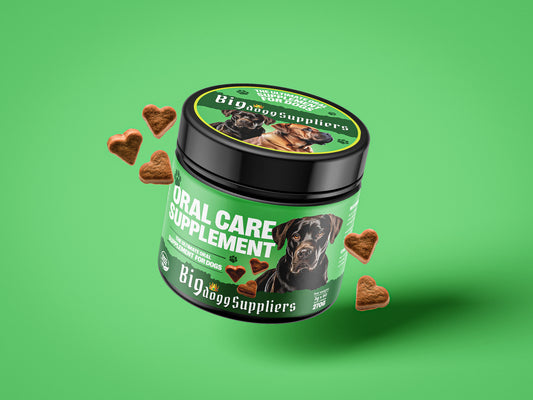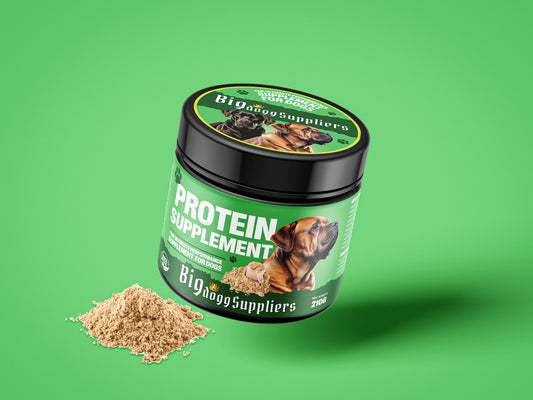Comprehensive Guide to Feeding Your Dog: Ensuring Optimal Health Through Proper Nutrition
The foundation of your dog's general health and wellbeing is feeding them a good, well-balanced diet. Promoting your dog's vitality requires knowing the fundamentals of canine nutrition, choosing diet dog food that is suitable for your dog, and developing efficient feeding procedures.
Understanding the Nutritional Needs of Dogs
Dogs need a diet that provides the vital nutrients they need to sustain their development, energy levels, and body functions. A healthy canine diet should consist of the following main ingredients:
- Proteins: Essential for tissue healing and muscular growth. A dog's diet should include high-quality protein sources including fish, meat, and chicken.
- Fats: Provide concentrated energy and support cell function. Incorporate healthy fats like omega-3 and omega-6 fatty acids to promote skin and coat health.
- Carbohydrates: Support cell activity and offer focused energy. To support the health of your skin and coat, include good fats like omega-3 and omega-6 fatty acids.
- Vitamins and Minerals: Essential for metabolic processes and maintaining immune health. Ensure your dog's diet includes a variety of fruits and vegetables to meet these needs.
How to Choose the Right Diet Canine Food
When selecting diet dog food, you should take into account your dog's age, breed, degree of exercise, and overall health. Here are some pointers to help you:
- Life Stage Considerations:
- Puppies: To promote their quick growth and development, they need food that is high in nutrients.
- Adult Dogs: A balanced diet is necessary for adult dogs to be healthy and have plenty of energy.
- Senior Dogs: Specialised diets that target health issues associated with ageing may be beneficial
- Weight Management:
- Overweight Dogs: For dogs who are overweight, use weight loss formulations that are lower in fat and calories to encourage healthy weight reduction.
- Underweight Dogs: To encourage weight increase, choose diets abundant in calories and nutrients.
- Special Dietary Requirements:
- Allergies or Sensitivities: To reduce negative responses, take into account diets with fewer ingredients or hypoallergenic foods.
- Medical Conditions: Consult your veterinarian for prescription diets tailored to specific health issues.
Establishing Effective Feeding Practices
Implementing proper feeding practices is as important as selecting the right food. Consider the following:
- Portion Control:
- Follow the feeding recommendations on the dog food container, modifying serving sizes according to your dog's specific requirements.
- Keep a close eye on your dog's weight and overall health, and modify as needed.
- Feeding Schedule:
- Puppies: Benefit from multiple small meals throughout the day to support growth.
- Adult Dogs: Typically do well with two meals per day.
- Senior Dogs: May require more frequent, smaller meals depending on health status.
- Avoiding Overfeeding:
- Avoid giving too many snacks or leftover food as this might result in weight gain and nutritional imbalances.
Incorporating Dog Diet Food for Specific Health Goals
Foods for dogs on a diet are designed to help with certain health goals, such managing weight, maintaining digestive health, or reducing allergies.
Consider the following options:
- Consult with a Veterinarian:
- To choose the best diet food for your dog's unique health requirements, see an expert.
- Gradual Transition:
- Introduce new diet foods gradually over 7-10 days to avoid gastrointestinal distress.
- Monitoring and Evaluation:
- Take note of any changes in your dog's activity levels, coat quality, or digestive health as you watch how they react to the new diet.
Identifying Nutritional Imbalance Symptoms
It's critical to keep an eye out for symptoms that might point to excesses or shortages in nutrition, such as:
- Weight Changes:
- Unexpected weight increase or reduction may indicate nutritional problems.
- Skin and Coat Health:
- Skin irritations, a dull coat, or excessive shedding might be signs of malnutrition.
- Energy Levels:
- Inadequate nutrition might cause hyperactivity or lethargy.
- Digestive Issues:
- A dietary assessment is necessary if vomiting, constipation, or diarrhoea occur often.
The importance of hydration in dog nutrition
Drinking enough water is essential for your dog's well-being. Make sure:
- Constant Access:
- Always provide fresh and clean water.
- Monitoring Intake:
- Be alert of changes in drinking patterns, since increased or decreased water intake may suggest health problems.
Common Misconceptions About Canine Diets
Dispelling myths is crucial for informed feeding practices:
- "Grain-Free Diets Are Always Better":
- Not all dogs require grain-free diets, some grains provide valuable nutrients. Consult your veterinarian before making such dietary changes.
- "Table Scraps Are Harmless":
- Human meals can be unhealthy to dogs and cause obesity or poisoning. It is recommended to avoid feeding table leftovers.
Conclusion
Giving your dog a healthy and adequate food is an important part of proper pet ownership. Understanding your dog's nutritional needs, selecting appropriate diet dog food, and implementing effective feeding methods all help to improve his or her health and happiness. Regular meetings with your veterinarian can help ensure that your dog's nutritional routine promotes general health.




